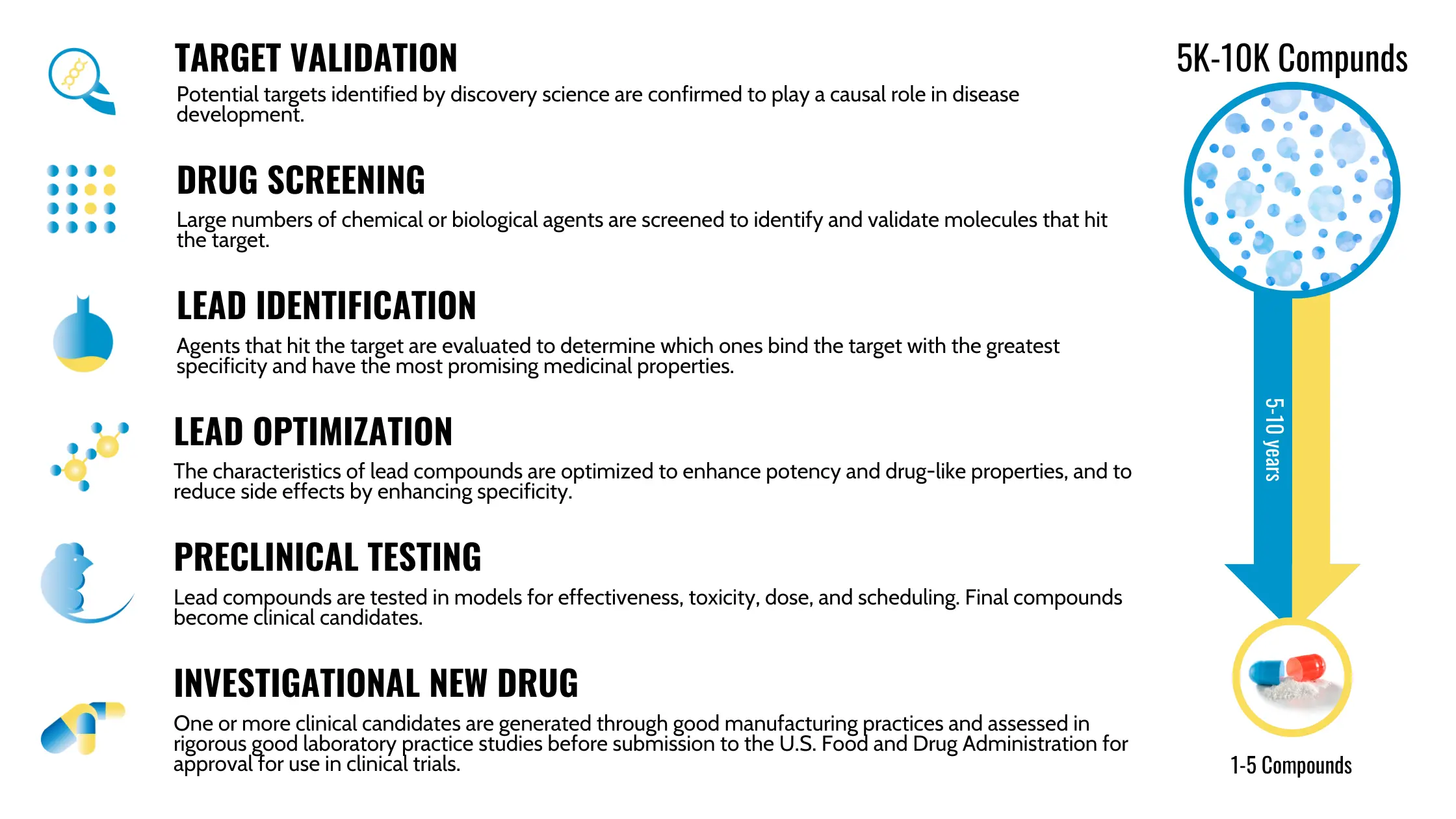Cancer remains a major global health challenge, affecting millions worldwide. Understanding the impact of ongoing research is crucial. As we mark the start of National Cancer Research Month, recent statistics reveal significant progress but also emphasize the urgent need for further innovation.
The Good News: Increased Lifespan and Reduced Mortality
In the United States alone, cancer patients have collectively gained nearly 14 million additional years of life since 1980[1]. Moreover, this incredible feat required a federal government investment of only $326 per life-year gained. A 2023 report by the American Association for Cancer Research (AACR) highlights an over 33% reduction in the cancer-induced death rate nationally[2]. This signifies substantial progress in combating the disease.
The Challenge: Disparities and The Need for Continued Research
The AACR report also acknowledges the uneven progress. While some cancers see significant improvement, others (difficult-to-treat cancer) remain highly lethal[2]. Disparities in cancer outcomes exist based on factors like socioeconomic status and race. Early detection and access to advanced treatments are crucial, requiring continued research efforts to bridge these gaps[2].
Real-life Examples of Current Strategies in Cancer Research
Animal Models: Research on genetically engineered mice with tissue-specific tumors has provided invaluable insights into cancer biology. For instance, studies on the role of fibroblasts within tumors in mice models have helped us understand how cancer cells interact with their environment and respond to therapies[3].
Targeted Therapy: The relatively recent FDA approval of drugs like futibatinib, pemigatinib, and infigratinib marks a significant milestone. These drugs target a specific protein, fibroblast growth factor receptor 2 (FGFR2), associated with certain cancers[4]. Their development exemplifies the success of targeted therapy approaches in modern oncology.

Challenges in Clinical Trials: High Failure Rates
Despite these advancements, challenges persist, particularly in clinical trials. Systematic reviews indicate a discouraging failure rate of around 90% in late-stage clinical trials[5]. This translates to substantial financial losses and delays in bringing effective treatments to patients. Factors like inefficient trial design, inadequate data collection and lack of clinical efficacy contribute to this high rate[6].
Learning from Setbacks: Recent Examples
Recent years have seen setbacks in highly anticipated cancer treatments, highlighting the inherent uncertainties in clinical trials. Companies like Merck and Novartis have experienced failures with drugs that did not meet expectations in trials. For example, Merck’s pembrolizumab (Keytruda) in combination with its anti-TIGIT therapy vibostolimab failed to show improvement in survival rates for patients with non-small cell lung cancer (NSCLC) in a Phase 2 trial[7]. Similarly, Novartis faced disappointment with their drug Ilaris (canakinumab). Trials investigating Ilaris as a potential treatment for non-small cell lung cancer alongside chemotherapy or as a second or third-line therapy did not demonstrate the anticipated benefits[8].
These are just a couple of examples, and clinical trial failures occur across various cancers and drug targets. While setbacks are discouraging, they provide valuable lessons for researchers. By analyzing the data from failed trials, scientists can gain insights into why certain therapies were ineffective and can use this knowledge to improve future drug development efforts.
The Importance of Multi-Modal Approaches
The complexity of cancer demands a multifaceted approach to research and treatment development. Recent research suggests that focusing on stratified clinical trials and utilizing multimodal biomarkers from the outset hold significant promise for improving research outcomes.
- Stratified Trial Design: This approach involves dividing patients into subgroups based on specific characteristics like mutations or disease subtypes. This allows researchers to target therapies to the most relevant patient populations, increasing the likelihood of positive results and reducing trial failures[6].
- Pharmacogenomic profiling: Tailoring treatments based on a patient’s individual genetic makeup to predict their response to therapy and avoid ineffective medications. A recent Yale-led study highlights how neglecting this aspect can contribute to clinical trial failures. The study found that patients with mutations in a specific gene (PTEN) did not respond well to a drug combination being evaluated in a trial[9]. This emphasizes the importance of incorporating pharmacogenomic profiling into clinical trial design to improve patient selection and trial outcomes.
- 3D in vitro modeling: Utilizing advanced cell cultures that better mimic tumor behavior and mechanics, including the complex interactions between cancer cells and their surrounding environment[10]. These 3D models provide a more realistic platform for testing drug efficacy compared to traditional 2D cell cultures.
- Advanced tumor microenvironment profiling: Understanding the complex ecosystem surrounding cancer cells within the body. The tumor microenvironment plays a crucial role in cancer progression and treatment resistance. By using advanced profiling techniques, researchers can gain insights into the composition and function of the tumor microenvironment and develop strategies to target it alongside cancer cells[11].
This combined approach allows researchers to target specific patient populations with therapies most likely to be effective, while also gaining a deeper understanding of individual responses.
A Paradigm Shift in Biotech and Pharma
Moving forward, a growing focus within the pharmaceutical and biotechnology industries is on meeting the real-world needs of patients and the medical community, alongside regulatory approval. By prioritizing innovation and adopting a multi-modal approach, researchers can avoid the pitfalls described earlier in this blog and make significant strides in improving cancer treatment, ultimately benefiting patients, clinicians, and researchers alike.
This National Cancer Research Month let us renew our commitment to supporting this vital field and refining our approaches to ensure every effort translates to increased success in clinical trials, and ultimately into saving lives.
References
1. Swog.org. 14 Million Years of Life: A Modest Investment. https://www.swog.org/news-events/news/2021/09/20/nctn-trials-added-14-million-years-life Published December 16, 2022. Accessed May 2, 2024.
2. American Association for Cancer Research (AACR). Cancer Progress Report 2023. https://cancerprogressreport.aacr.org/progress/ Published October 24, 2023. Accessed May 2, 2024.
3. Sahai E, Astsaturov I, Cukierman E, et al. A framework for advancing our understanding of cancer-associated fibroblasts. Nat Rev Cancer. 2020;20(3):174-186. doi:10.1038/s41568-019-0238-1
4. Gandhy SU, Casak SJ, Mushti SL, et al. FDA Approval Summary: Futibatinib for Unresectable Advanced or Metastatic, Chemotherapy Refractory Intrahepatic Cholangiocarcinoma with FGFR2 Fusions or Other Rearrangements. Clin Cancer Res. 2023;29(20):4027-4031. doi:10.1158/1078-0432.CCR-23-1042
5. Sun D, Gao W, Hu H, Zhou S. Why 90% of clinical drug development fails and how to improve it? Acta Pharm Sin B. 2022;12(7):3049-3062. doi:10.1016/j.apsb.2022.02.002
6. Cook D. Financial and statistical limitations of late-stage cancer clinical trials. Nature Reviews Drug Discovery. 2017;16(12):870-870. doi:10.1038/d41586-017-08705-4
7. Reuters. Merck’s lung cancer drug combo fails to meet trial goal. https://www.reuters.com/business/healthcare-pharmaceuticals/merck-combination-treatment-lung-cancer-fails-late-stage-study-2024-03-21/ Published December 7, 2023. Accessed May 2, 2024.
8. Novartis. Novartis Provides Update on Phase III CANOPY Study Evaluating Canakinumab Adjuvant Treatment in Non-Small Cell Lung Cancer. https://www.novartis.com/news/media-releases/novartis-provides-update-phase-iii-canopy-study-evaluating-canakinumab-adjuvant-treatment-non-small-cell-lung-cancer Accessed May 2, 2024.
9. Yale University. Yale-Led Research Explains Why Many Cancer Drugs Fail During Clinical Trial Testing. https://medicine.yale.edu/news-article/yale-led-research-explains-why-many-cancer-drugs-fail-during-clinical-trial-testing/ Accessed May 2, 2024.
10. Fontana F, Marzagalli M, Sommariva M, Gagliano N, Limonta P. In Vitro 3D Cultures to Model the Tumor Microenvironment. Cancers (Basel). 2021;13(12):2970. doi:10.3390/cancers13122970
11. Sadeghi Rad H, Monkman J, Warkiani ME, et al. Understanding the tumor microenvironment for effective immunotherapy. Med Res Rev. 2021;41(3):1474-1498. doi:10.1002/med.21765



